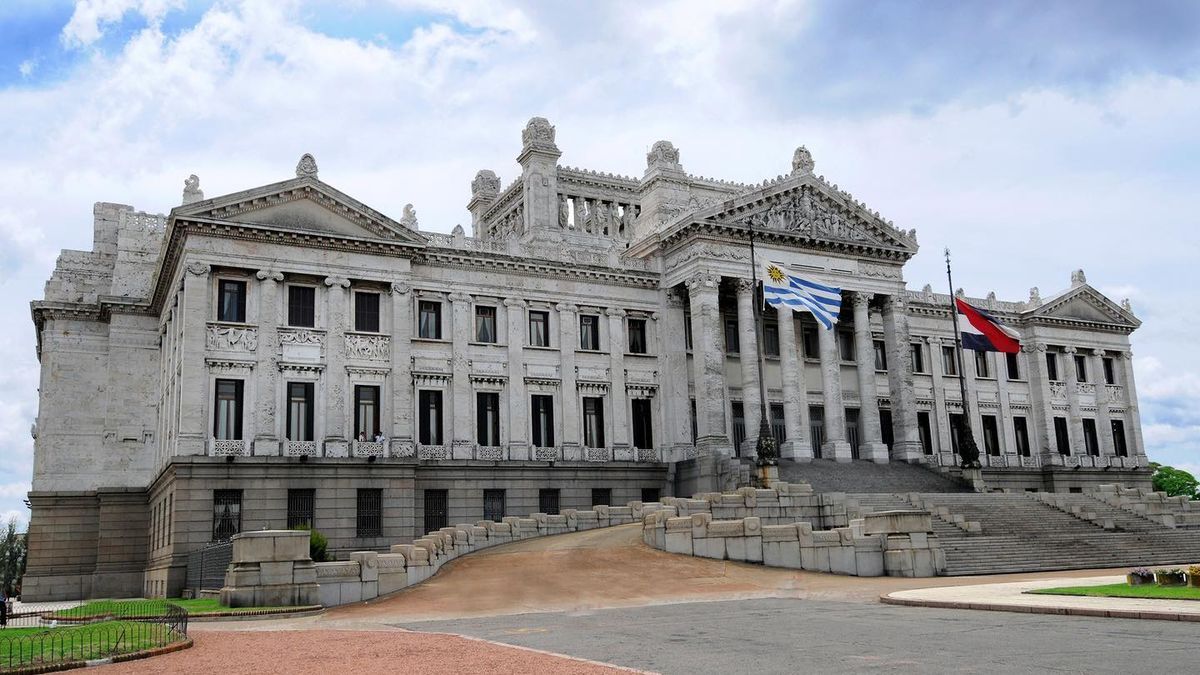Uruguay would face a unique scenario in its history in case Alvaro Delgado be declared the winner in this Sunday’s ballot. Being president, he would have to face a Senate with a large majority of Broad Front (FA), which would compromise the governability of its management, while Yamandu Orsi He would have a smoother path if he prevailed in the elections.
In the October elections, the Frente Amplio was crowned the large winner in the upper house with a total of 16 representatives, while the National Party and the Colorado Party They managed to place 9 and 5, respectively. Meanwhile, in the House of Representatives, the Multicolor Coalition led by Delgado reached 49 deputies (29 from the National Party, 17 from the Colorado Party, 2 from Open Town Hall and 1 of Independent Party) and the FA at 48.
In this way, the scenario of governance Delgado commits himself with the majority of the Senate against him. “It is an unusual thing for this country that we will have to see how it handles. Basically he can’t do anything because he can’t pass any law, but he also can’t appoint any body, ambassadors or directors of public companies because all of that goes through the Senate,” said the political analyst. Daniel Buquet in dialogue with Scope.
For his part, Orsi would have a smoother path with a Upper House in your favor and a House of Representatives where you only have to get two more votes to obtain a majority. “It is a government that is in a minority in Deputies, but it has a good chance of achieving those circumstantial majorities in each case,” explained the political scientist. Mauro Casa.
The need for dialogue
With this possible scenario, if the winner of Sunday night is Delgado, the eventual president will have to put his weapons of negotiation and dialogue on the table. “The governability that Delgado can offer is 100% subject to the agreements he can make with the opposition,” Casa remarked.
However, the FA would not be expected to take a non-negotiation stance, although political conflict and constant negotiations would be the order of the day.
“In USAthis phenomenon is called divided government,” explained Buquet. But he stressed that the difference with Uruguay The thing is that here the political parties are disciplined, so the possibility of negotiating with the possible opposition is shortened.
“The Delgado government will have no choice but to offer Frente Amplio to be part of its government. He will probably need to be integrated into the cabinet of ministers, although it is possible that FA will reject that invitation,” Casa estimated for his part.
The parliamentary elections changed the course of the campaign
“I would like to have Orsi, because I think there is value per se in having him in the next government.” These and other statements belong to a Alvaro Delgado who moderated his speech against his rival and took a position of conciliation with a possible opposition that has a majority in Parliament.
In this way, the parliamentary elections played an important role in what remained of the campaign for the runoff. The candidates had to review their positions and make some modifications to their campaigns. “Both had to change, to some extent, their campaign strategy due to how the election was formed. Parliament”, Casa stated. “Delgado’s positioning is much more strategic and it is clear that it is an imposture,” he added.
Fire test
“Uruguay It tends to function as an example of democracy, of the proper functioning of politics, of political parties. But if this happens, it would be like a litmus test to see if it is true that, under these conditions, the channels of dialogue remain open and the possible government manages to govern,” Buquet commented.
During the last 20 years, the governments in power have had parliamentary majorities and their management was facilitated, turning them into strong governments. “It has been 20 years where experience has been lost in the daily dialogue in politics and all the negotiations have gone more to the internal parties,” Casa explained.
Today, in the case of winning Alvaro Delgadopolitical tensions will increase and the need for dialogue and negotiation will be the necessary tool to govern, while Uruguay tests its solid institutionality facing a scenario that had never happened in its political history.
Source: Ambito




